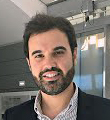Return migration and gender norms: evidence from Jordan
Migration can be responsible for the spread of new social norms about gender roles. This column explores the impact of temporary migration from Jordan to more conservative and highly unequal neighbouring countries. The results indicate that women in households with a return migrant become more conservative themselves.


